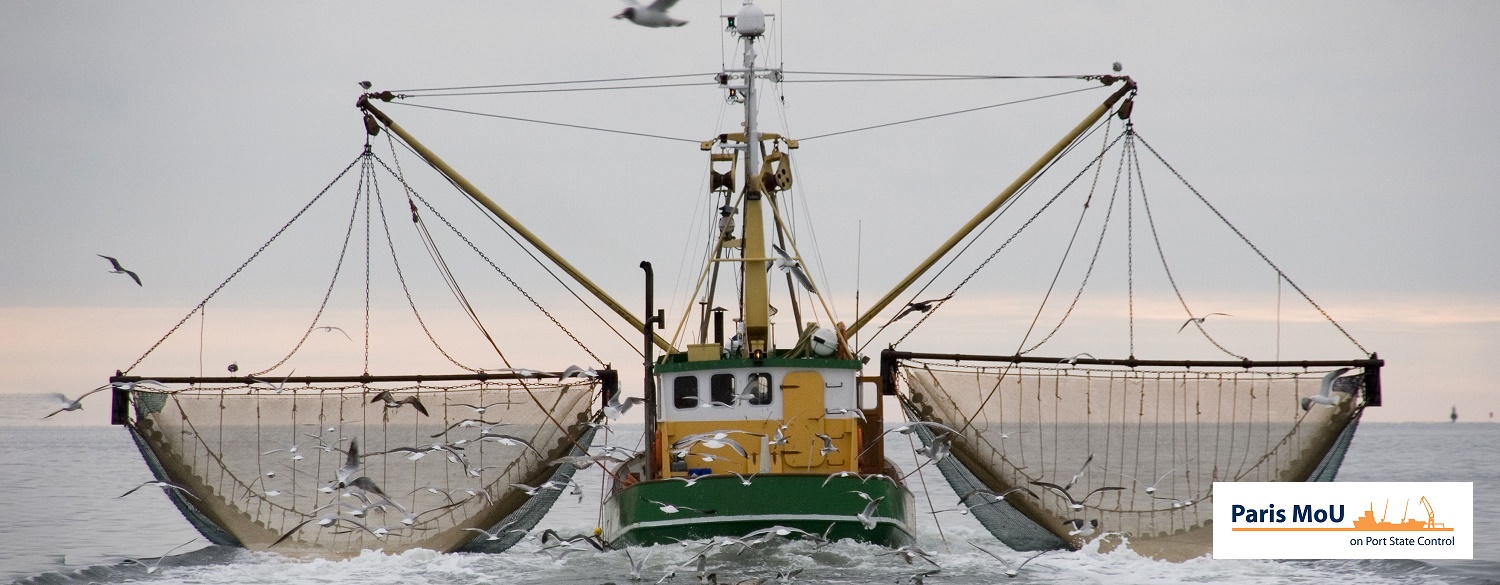Paris MoU pilot on PSC on Fishing Vessels
Lately, there has been increased attention for fishing vessel safety, prevention of pollution and working and living conditions onboard fishing vessels. Consequently, the implementation of port State control on fishing vessels has been a matter of attention as well.
The conventions applicable to fishing vessels already make it possible for port State control Authorities to inspect fishing vessels operating internationally. And quite a lot of the members of the Paris MoU do.

Given the accident statistics regarding fishing vessels, but also the increasing regulation of fishing vessels, the Paris MoU is conducting a pilot to evaluate whether it could be of added value to implement a harmonised approach to port State control on internationally operating fishing vessels.
With this communication we would like to inform you about this pilot.
The pilot will be conducted in 2024 and 2025 and will be aimed at internationally operating fishing vessels of 24 meters and above.
Although the Paris MoU as an organisation initiated this pilot, a limited number of Paris MoU members are participating in the pilot: Canada, Croatia, Denmark, France, Germany, Ireland, Netherlands, Norway, Spain and United Kingdom.
However, it should be noted that, as mentioned, any member Authority of the Paris MoU currently already has the possibility and right to inspect fishing vessels visiting their ports. It only means that if any member other than those participating in the pilot inspects a fishing vessel, the results will not be part of the pilot.
Criteria and context:
1. Any internationally operating fishing vessel will be visited only once a year, unless specific signals that a ship is substandard would give reason to do otherwise.
2. A port State control visit is based on the rights of the port State as set out in international conventions which state port State control can be enforced.
3. The visit is also for information purposes and may be used to raise awareness and inform the fishing industry of the convention requirements, where appropriate.
4. Parties participating in the pilot are flexible in visiting fishing vessels. No specific targeting methodology is used.
5. The collection of information will cover general information, ship particulars and compliance at a general level relating to safety, environmental requirements and living and working conditions in force in current conventions.
6. Current conventions in effect which will be at least taken into account are: SOLAS, MARPOL (Annex I, IV, V, VI), STCW-F and ILO 188.
7. In this pilot project of gathering information, general remarks, not specifically based on a convention requirement can be recorded as well, if deemed appropriate for information and evaluation purposes.
8. Should a Port State Control Officer (PSCO) consider it necessary to detain the fishing vessel, due to non-compliance related to currently applicable conventions, the PSCO will detain the vessel based on national legislation.
9. The principles applied within the Paris MoU related to undue delay of the vessel and the code of good practice (attached) are also applicable during the pilot project.
After the pilot period a report will be submitted to the Paris MoU Port State Control Committee. The report will entail an evaluation, including advice whether there will be added value in implementing a harmonised approach to port State control of fishing vessels.
